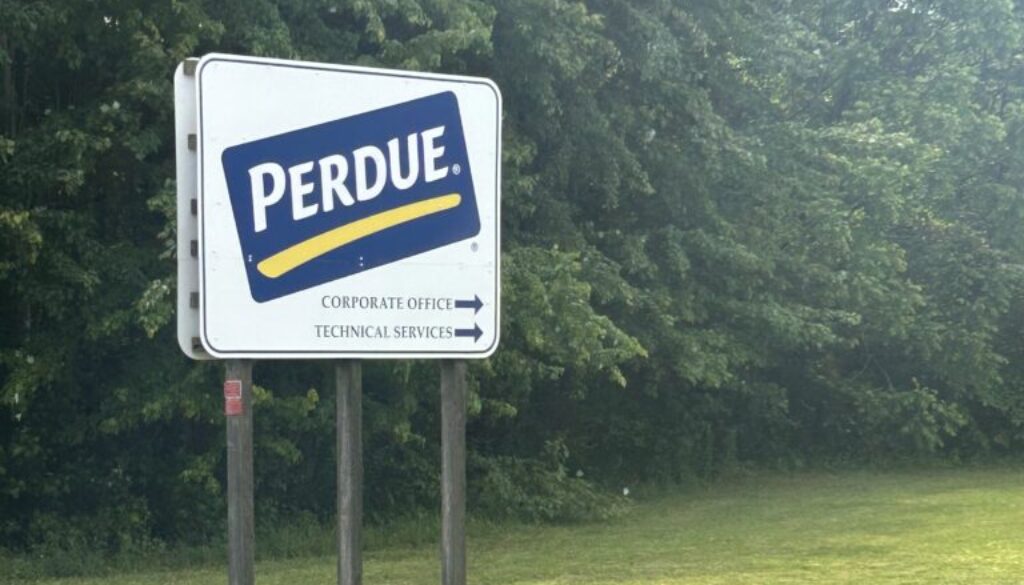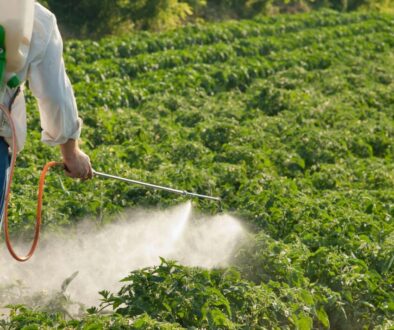Perdue keeps breaking law by improperly disposing of PFAS-laced waste, Maryland residents allege
In the latest move to combat contamination of a Maryland community’s drinking water, two Salisbury residents allege Perdue Agribusiness is violating federal law by failing to properly dispose of waste that contains toxic PFAS chemicals, according to a lawsuit filed July 25.
The legal action, filed in the US District Court for the District of Maryland, follows a class action lawsuit filed against the company last fall representing over 400 residents. The initial lawsuit alleges that community members have suffered health issues as a result of the company’s “reckless” disposal of the chemicals.
The recent complaint alleges that the company’s local soybean facility is violating the Resource Conservation and Recovery Act (RCRA) by improperly disposing of waste laced with per- and polyfluoroalkyl substances (PFAS). The lawsuit specifically accuses the company of dumping some of its contaminated waste into local streams and storing some in lagoons and disposal areas from which the contaminants leach into groundwater and surface water.
The lawsuit was filed three months after attorneys for the plaintiffs warned they would sue if violations continued.
“These ongoing violations harm both the drinking water and surface waters used by Plaintiffs, as well as cause harm to aquatic life, including fish and shellfish,” the lawsuit alleges. “The ongoing violations also harm the recreational, aesthetic, and/or commercial interests of citizens in the surrounding areas.”
“We continue to work closely with the Maryland Department of the Environment (MDE) on a comprehensive testing and treatment plan that is transparent, proactive and grounded in science and public health,” said Perdue in response to the latest lawsuit, adding that the legal action “will not impact the work Perdue is doing to test and treat elevated levels of PFAS in groundwater” in and around the facility.
Tests of the groundwater at the Perdue soybean facility in Salisbury, a city of about 33,000 people, has tested for the PFAS chemical perfluorooctanoic acid (PFOA ) at levels up to 39 times higher than drinking water standards set by the US Environmental Protection Agency (EPA), for perfluorooctane sulfonate (PFOS) by over 340 times, and for perfluorohexanesulfonic acid (PFHxS) by over 150 times, according to the complaint.
An international cancer group has classified PFOA as carcinogenic to humans and PFOS as possibly carcinogenic to humans. PFHxS has been found to disrupt thyroid hormones and the immune system.

Since the Perdue facility sits on top of a shallow aquifer, the contaminated groundwater flows towards nearby homes with private wells, according to the complaint. At least 112 drinking water wells have been found to contain at least one PFAS chemical above the EPA’s drinking water limit, the lawsuit states, and “often at levels that are 100 to 100 times the regulatory limits.”
The lawsuit was filed on behalf of Stephen Jones and Richard Renshaw, two area residents whose drinking water tested “well above” EPA limits in fall 2024. As a result of drinking the water, the plaintiffs fear they could develop health effects in the future, according to the complaint.
Perdue AgriBusiness accepted responsibility for the contamination after MDE designated it a “responsible person”, the company said in a recent statement to The New Lede.
The company has provided residents with water filtration systems and bottled water and paid for well testing. It also recently made updates at the facility to remove potential PFAS sources, including installing a new PFAS-free fire suppression system and an advanced outflow PFAS treatment system, said Perdue. “Initial testing indicates that the advanced water treatment system is effective in reducing PFAS levels in the wastewater effluent,” said the company.
“Perdue’s recent response does not begin to address the scale of the crisis,” the law firm representing the plaintiffs said in a statement. “The company’s well testing and its filtration installation fail to include roughly half of the affected homes, leaving hundreds of families without access to clean drinking water. Perdue is prioritizing production and profit over the safety and health of this community. The people living here deserve better.”
(Featured image by Shannon Kelleher.)




